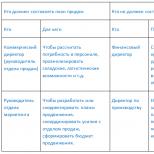Investment in real estate in Russia
Recently, more and more often I began to think about investing in real estate in Russia and decided to write a separate note about my thoughts. I'll start with a little excursion into history.
The popularity of investing in real estate is caused, first of all, by the sharp rise in prices that began in the early 90s. The peak of growth came in 2005-2006 - then prices grew by leaps and bounds, not keeping up with the realities of the market.
The activity of buyers in the two capitals of Russia was impressive. Those who wanted to buy an apartment often paid for it an amount that was 5-10% higher than the current one, otherwise the apartment could go to other buyers. Investments in real estate in Russia are rapidly gaining momentum. It was not easy to buy housing in a new building - this meant a queue, or a cash payment. Those who were engaged in real estate in that period did not rise slightly.
In the end, prices doubled in a couple of years! The excitement subsided, and the developers had problems with the implementation of the constructed housing. So the real estate market came to a saturation point, the situation for developers was further complicated by the onset of the global economic crisis, which undermined the solvency of the middle class. As a result, the real estate market has noticeably slowed down, but prices still continue to grow.
If you are currently choosing an object and do not know which company to contact, write to me using the feedback form. I will share the contacts of experienced agents who can advise and help with the selection of objects for free.
Investing in real estate is fashionable

Now investing in real estate in the world is a reliable and proven investment. Exceptions are troubled regions prone to natural disasters and wars. Real estate is not afraid of inflation, housing is steadily growing in price (unless, of course, a terrible financial crisis erupted outside the window).
The most profitable real estate investments in Russia are million-plus cities, where there will always be a demand for rent or purchase of real estate. In Russia, the list of such places is small - these are Moscow, St. Petersburg, Nizhny Novgorod, Novosibirsk, Samara, Yekaterinburg, Chelyabinsk, Omsk, Rostov-on-Don, Kazan, Volgograd and Ufa. The most attractive for us, as investors, are St. Petersburg and Moscow. These are the largest domestic megacities with a number of advantages. There are enough jobs and educational institutions, and there will always be a demand for rent.
Kiyosaki (by the way, I will soon write about his investment strategy) considers investing in real estate to be one of the most profitable activities. This is also true for commercial real estate, since business is developed in proportion to the population. When choosing commercial real estate, the location of the object plays a decisive role, so competition in this market niche is very high.
The return on my investments for 2017 is about 30% per annum, you can read the latest news of my investments in the weekly. I recommend that every reader take a course on the lazy investor. The first week is absolutely free.

Most large investors believe that it is most profitable to invest in foreign real estate. A developed economy, the absence of natural disasters and defaults, the low cost of mortgages - all this makes overseas housing extremely attractive. But similar, albeit with a stretch, is possible with us.
I plan to try on my own experience the following option of investing in real estate.
We buy an apartment in St. Petersburg for 2-3 million rubles. Another 50-100 thousand are invested in cosmetic repairs. After that, we begin to rent it out - from 20 thousand rubles a month, plus the payment of CU. More than 240 thousand net profit is obtained per year. By simple calculations, it turns out that in 10 and a half years the initial investment is fully paid off. I absolutely do not want to wait 10 years, so I devoted a lot of time to the issue of reducing the payback period.
So, in order to shorten the payback period of investments in real estate I will use the following methods:
1. Increase real estate liquidity.
This method was recommended to me by a friend who is now actively involved in real estate. The method consists in increasing the cost of renting real estate, due to the daily rent of housing. The method is quite aggressive, as it involves the risks of damage to property, lack of regular customers, etc...
Now the average cost of renting a one-room apartment in St. Petersburg starts from 2-3 thousand rubles. It turns out that even if you take 2000 rubles per day (to compensate for possible risks and CG), the cost of rent per month increases to 60 tr. per month! We take a calculator and count: 2.5 million divided by 60,000 and divided by 12, it turns out 3.5 years. Due to additional risks, this period can be rounded up to 4 years. It's not bad anymore????
2. Investing rental income
The income received from the apartment will immediately fall into the investment stream. With an average return of 3% per month, using compound interest, it turns out that the payback period for real estate investments is reduced to 2.5 years! (with a monthly replenishment of 60K rubles).
It is clear that these calculations are rather conditional. To take into account all the risks, a more professional market analysis is needed. But, damn it, payback even in 3 years is really cool.

Benefit-benefit, but, unfortunately, I don’t have an extra couple of millions yet. What to do in this case? In principle, you can get a mortgage, for which tenants will pay. But I am not yet emotionally ready for this step, although by and large the principle of operation is the same, only credit funds are used and you need to pay a percentage for use. In view of my individual intolerance to loans, I did not conduct an in-depth analysis of mortgage offers, so please correct me if I make a mistake in the calculations.
So, an approximate plan of action when using a mortgage.
We find 300 thousand for the first installment, and we take an apartment for 30 years at 13% per annum. The overpayment is monstrous, but the losses from the mortgage will be more than covered by rent. The main disadvantages of using mortgages in the ways described above is a long payback period. But if in the foreseeable future a new wave of housing hype surges, it will be possible to sell an apartment at the peak of prices, and pay off the mortgage in one fell swoop and get a good profit.
Here's the math.





